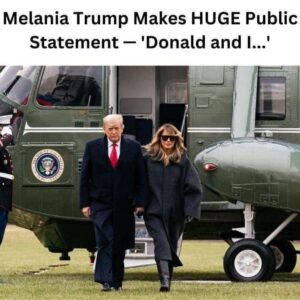In a significant policy shift that has sparked both praise and controversy across international and domestic arenas, former U.S. President Donald Trump signed an executive order in January 2025 that authorizes the deportation of foreign students participating in protests deemed anti-Israel or supportive of designated terrorist organizations.
This executive order, which the administration describes as a measure to combat anti-Semitism, has major implications for international students studying in the United States and the broader debate over free speech on college campuses.
The order directs federal agencies, including the Department of Homeland Security (DHS) and the Department of State, to review and potentially revoke visas of non-U.S. citizens involved in demonstrations that are interpreted as promoting hostility toward the State of Israel or supporting groups such as Hamas, which has been officially designated a foreign terrorist organization by the U.S. since 1997.

The administration argues that this measure is necessary to curb what it sees as an alarming rise in anti-Semitic sentiments in academic institutions.
A Direct Response to Campus Protests
Over the past several years, university campuses across the United States have seen a dramatic increase in activism related to the Israeli-Palestinian conflict. Pro-Palestinian demonstrations intensified following escalations in the Middle East, prompting heated debates about the limits of political expression, academic freedom, and national security.
The Trump administration has taken the position that certain chants, slogans, or expressions used in these protests go beyond protected speech when they appear to endorse violence or materially support foreign terrorist groups. Citing immigration law, the order makes it clear that visa holders do not enjoy the same speech protections as U.S. citizens if their actions are interpreted as endorsing terrorism.
Under Section 212(a)(3)(B) of the Immigration and Nationality Act, non-citizens may be denied entry or deported if they are found to have “endorsed or espoused” terrorist activity. The new executive order explicitly ties certain protest behaviors to these criteria, empowering federal agencies to act swiftly.
What the Executive Order Does
The executive order contains several major provisions:
Visa Review and Revocation: Federal agencies must identify international students involved in what the administration defines as anti-Israel or pro-Hamas activities. This includes monitoring campus events, reviewing arrest records, and examining affiliations with certain student groups.
Expanded Definition of Anti-Semitism: The order aligns with previous efforts to broaden the legal understanding of anti-Semitism. Criticism of Israel that crosses a certain line may be classified as hate speech or support for terrorist ideology.
Priority Enforcement: The order makes deportation of these individuals a top immigration enforcement priority, placing such cases alongside those involving national security threats.
Officials in the administration argue that the government has a duty to protect Jewish communities and prevent the spread of extremist ideologies within U.S. borders.





